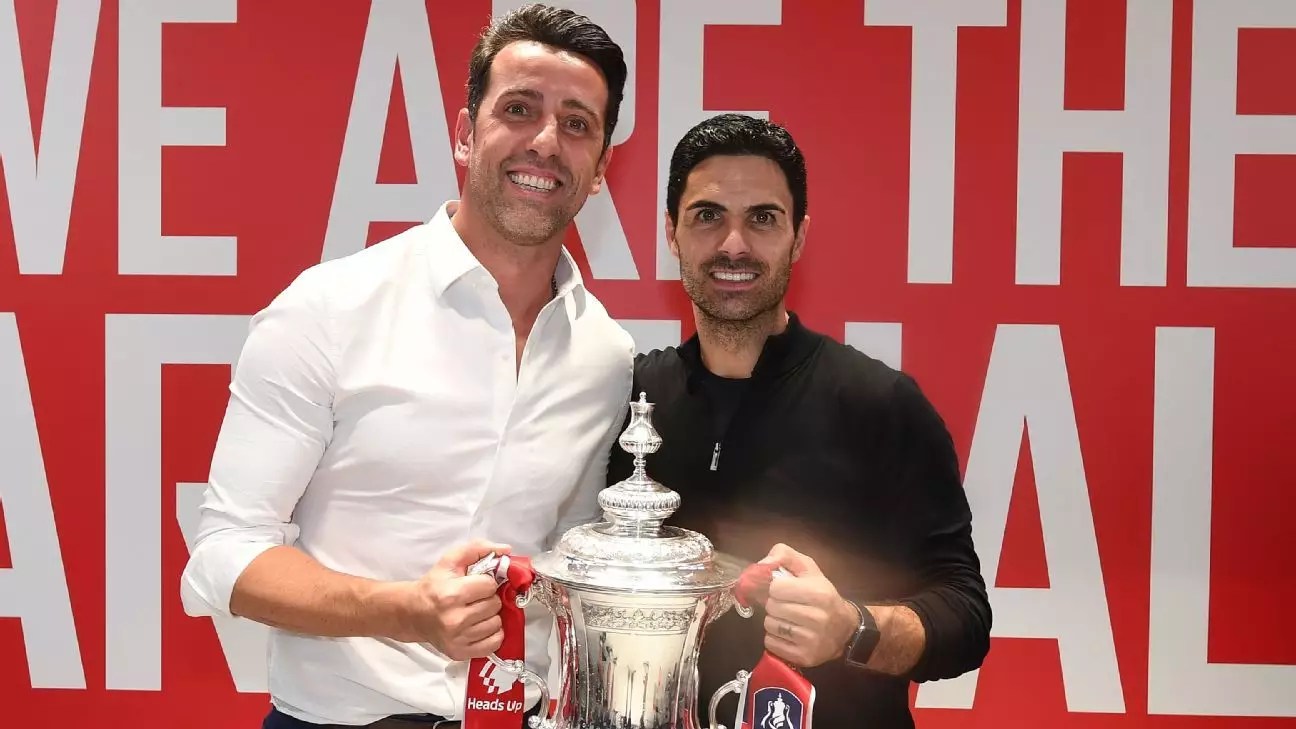The landscape of Arsenal Football Club has shifted dramatically with the recent departure of Edu Gaspar, who stepped down from his role as sporting director after five impactful years. His unexpected exit has raised questions about how the Gunners will navigate the upcoming January transfer window without a permanent sporting director. The club is currently working under the temporary guidance of Jason Ayto, Edu’s former assistant, while the search for a suitable successor unfolds. This pivotal moment in Arsenal’s management could significantly influence their strategies on and off the pitch.
Managing Transition Without Disruption
Mikel Arteta, the club’s manager, has made it clear that the absence of a permanent sporting director will not hinder their plans for the January transfer window. He emphasized the supportive role played by Ayto during this transitional phase and expressed confidence in his ability to manage the club’s priorities. Arteta’s comments suggest a pragmatic approach to the situation, indicating that the Gunners are committed to continuity and stability within their football operations. His reliance on Ayto, who is familiar with the club’s structure and culture, could mitigate any potential disruptions that might arise from this leadership change.
Arteta has tempered expectations for a busy January transfer window, reiterating that while some surprises may occur, the club is well-prepared to leverage opportunities as they arise. This attitude hints at a careful and strategic approach to player acquisitions, grounded in the current status of the squad. Arteta’s acknowledgment of the importance of squad depth and fitness indicates a willingness to adapt as circumstances evolve — particularly concerning player injuries that could necessitate action in the transfer market.
The Search for a New Sporting Director
The process of identifying a new sporting director is now a pressing priority for the Gunners. Managing director Richard Garlick has taken the lead in this search, considering candidates like Dan Ashworth and Roberto Olabe, who bring substantial experience and expertise from their respective backgrounds. Arteta’s remarks about the importance of hiring someone capable of taking the club to the “next level” underline the strategic significance of this decision. While the immediate focus remains on maintaining performance and stability, the long-term vision for Arsenal’s talent recruitment and development hinges on their choice of sporting director.
In addition to the staffing changes, injury concerns also loom over the club as players recover or remain sidelined. With Gabriel Magalhães returning from a hamstring issue and the uncertain status of Riccardo Calafiori due to a separate complaint, the management is acutely aware of how these factors can impact their squad’s effectiveness in the forthcoming matches. Arteta’s insights into player fitness illustrate the necessity of having a robust team capable of overcoming challenges, further stressing the importance of a well-coordinated strategy during this transitional phase.
Although Arsenal faces hurdles with recent leadership changes, the club appears well-equipped to handle the challenges ahead. With proactive management and a strategic outlook, Arteta and his team aim to position the Gunners for success, both in the immediate term and in shaping a promising future.


Leave a Reply